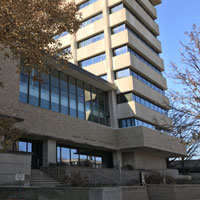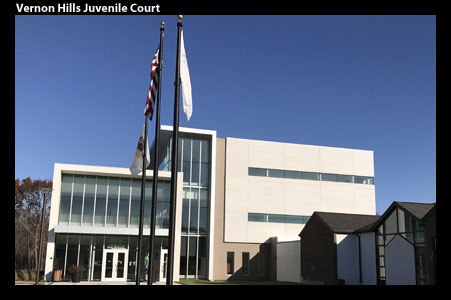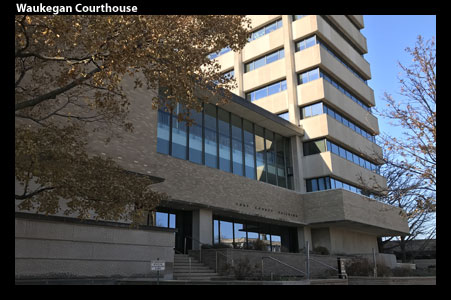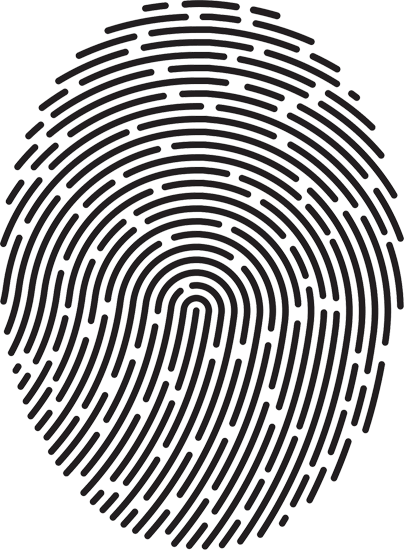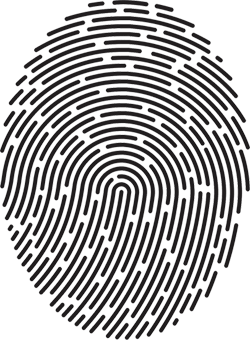White Collar Crime Attorney Lake County, Illinois
Your Lake County, Illinois WHITE COLLAR CRIME case can land you in felony court. A felony, under Illinois law, is a crime with a potential punishment of one or more years in prison.
The HoffmanLaw Office has nearly 20 years of experience working in the Lake County criminal court system. We are prepared to defend you in even the most complicated and fact-intensive Lake County white collar crime case.
A former Lake County Assistant State’s Attorney and former Lake County felony court prosecutor leads the HoffmanLaw Office. Your HoffmanLaw criminal defense lawyer has serious experience with a wide variety of Lake County white collar crime matters.
We understand the issues in your white collar crime case.
Whether you are charged with theft, fraud, deception, bribery, coercion, or any other unlawful act, your HoffmanLaw attorney is prepared to defend you against even the most serious white collar crime accusation. You can put your trust in us.
 HoffmanLaw
HoffmanLaw HoffmanLaw
HoffmanLaw(847) 587-5000
 HoffmanLaw
HoffmanLawWe Will Put Almost 20 Years of Experience to Work in Defending Your Lake County White Collar Crime Case
We Will Put Almost 20 Years of Experience to Work in Defending Your Lake County White Collar Crime Case
Lake County White Collar Crime Cases Include Many Types of Criminal Activity
Lake County White Collar Crime Cases Include Many Types of Criminal Activity
Illinois law does not specifically define "white collar crime." In general usage, the term white collar crime includes non-violent offenses involving the theft or unlawful use of money or other resources, or the accomplishment of unlawful acts, through fraud, deception or coercion.
Many white collar crime cases involve the violation of a position of trust in relation to the alleged victim.
If you are the defendant in a Lake County, Illinois white collar crime case, you may have had special access to property, information or resources of the alleged victim before you were charged with committing an offense.
The prosecution you face might specifically claim you took unlawful advantage of your relationship to the alleged victim in order to gain access to or control over property you had no legal right to possess.
If you have a fiduciary duty to the alleged victim, an alleged breach of that duty alone can help support the basis of a white collar crime.
What is a "fiduciary duty?"
If you have a fiduciary duty to a person or a business, then you owe that person or business a duty of care, trust and loyalty. If you knowingly or intentionally breach those duties, your alleged conduct can lead to a criminal offense.
What kind of crimes are "white collar crimes?"
White collar crime itself encompasses a wide range of criminal activity.
Acting deceitfully or fraudulently, but without physical violence, in order to gain unlawful control over property, or to obtain some unlawful advantage for yourself, can include many different types of criminal conduct.
What are examples of white collar crimes?
Examples of white collar crimes include stealing from your employer, from another person, especially in circumstances where you acted fraudulently or deceptively, or from a bank, insurance company, corporation or other for-profit or not-for-profit business or institution.
White collar crime also can include committing fraud on a person, a business or the government in order to procure some unlawful advantage for yourself or someone else.
What kind of white collar crime cases can my HoffmanLaw criminal defense lawyer defend?
Your HoffmanLaw criminal defense attorney can defend you against all types of Lake County white collar crime accusations. We defend all felony and misdemeanor white collar crime proceedings.
Having worked for nearly 20 years in Lake County misdemeanor and felony court, the HoffmanLaw Office has the knowledge and experience necessary to defend you in even the most complicated Lake County white collar crime case.
 HoffmanLaw
HoffmanLaw(847) 587-5000
What is White Collar Crime?
What is White Collar Crime?
Non-Violent Criminal Offenses Involving the Theft or Unlawful Use of Property
Or the Accomplishment of Unlawful Acts
Through Fraud, Deception or Coercion
Why Choose a HoffmanLaw Criminal Defense Attorney to Defend Your Lake County White Collar Crime Case?
Why Choose a HoffmanLaw Criminal Defense Attorney to Defend Your Lake County White Collar Crime Case?

Analysis.
The HoffmanLaw Office always is focused on the presumption of innocence. Building on this presumption, the HoffmanLaw Office performs a systematic and searching ANALYSIS of the facts alleged in your case. This intensive analysis exposes weakness in the prosecution's evidence and develops powerful defense arguments and strategies.

Preparation.
The HoffmanLaw Office strives to know completely the facts and law of your case. In criminal court, good results do not often emerge by chance. They come through intense PREPARATION that lays the groundwork for success. When you select the HoffmanLaw Office as your legal advocate, you team yourself with a philosophy of extreme preparation.

Results.
The HoffmanLaw Office views every time it appears in court with you as an opportunity to achieve RESULTS. Whether it is negotiating during a pretrial conference, cross-examining a witness, or delivering a closing argument at trial, the HoffmanLaw Office strives to be your best advocate at all times.
 HoffmanLaw
HoffmanLawYour Powerful Criminal Defense Advocate in White Collar Crime Proceedings
Your Powerful Criminal Defense Advocate in White Collar Crime Proceedings
Your HoffmanLaw criminal defense lawyer is ready to defend you in any of the following white collar crime cases in Lake County criminal court:
Bankruptcy fraud, bribery, computer fraud, computer tampering, conspiracy, corporate misconduct, credit and debit card fraud, deceptive practices including check fraud, embezzlement, providing false information on a government job application, financial exploitation of an elderly or disabled person, financial institution fraud, forgery, fraud on a government entity, identity theft, insurance fraud, mail fraud and wire fraud, mortgage fraud, money laundering, official misconduct, perjury, solicitation, state benefits fraud, and theft.
Bankruptcy Fraud
Bankruptcy Fraud
Illinois punishes bankruptcy fraud under a crime titled "fraud on creditors." See, 720 ILCS 5/17-27.
This law punishes a person who knows insolvency or bankruptcy proceedings have started or are about to begin and who engages in certain fraudulent conduct with the debtor's property in order to defeat a creditor's claim to that property.
Illinois criminalizes the following conduct in relation to bankruptcy or insolvency proceedings:
- Destroying, removing, concealing or transferring property that belongs to the debtor's estate with the intent to defeat or obstruct the claim of any creditor;
- Falsifying any writing or record relating to the property; or
- Misrepresenting or refusing to disclose to creditors information legally required to be disclosed to the creditors.
Illinois bankruptcy fraud is a class 3 felony if the benefit obtained in the fraud is less than $500,000. It is a class 2 felony if the benefit obtained in the fraud is $500,000 or more.
Bribery
Bribery
The crime of bribery punishes acting with the intent to influence the performance of any act relating to the employment or function of any public officer, public employee, juror or witness.
If you act with that intent and you promise to give such a person any property or personal advantage he or she is not permitted by law to accept, you can be prosecuted for bribery. See, 720 ILCS 5/33-1.
You can also be charged with bribery if you receive or agree to accept any property or personal advantage you are not permitted by law to accept, knowing the property or personal advantage was promised or given with the intent to cause you to influence the performance of any act related to the employment or function of any public officer, public employee, juror or witness.
As you can see, in Illinois both giving or receiving a bribe can be a criminal offense. Bribery is a class 2 felony, punishable by up to a $25,000 fine and up to 3 to 7 years in prison.
Computer Fraud & Computer Tampering
Computer Fraud & Computer Tampering
Illinois punishes a number of crimes involving the illegal use of computers. Two such crimes include computer fraud and computer tampering.
If you are charged with the offense of computer fraud, you might be charged with using a computer to engage in fraudulent or deceptive activity. Alternatively, you could be charged with having used a computer to obtain money, property or services in a fraudulent manner.
The charge of computer fraud generally is targeted at punishing the use of a computer (or a computer program or data) in the commission of a fraud or deception.
If you are charged with computer tampering, the prosecution is not required to show you engaged in or intended to engage in fraudulent activity.
Computer tampering punishes unlawfully accessing someone else's computer.
The crime of computer tampering also punishes unlawfully accessing someone else's computer and obtaining services or altering, removing or deleting data.
The crime of computer fraud, as it implies, involves the unlawful use of a computer in the commission of a fraud. You can be charged with the crime of computer fraud in a number of different circumstances:
- You accessed a computer, program or data with the intent of committing a fraud or deception;
- You used, damaged or destroyed a computer or removed a program or data in connection with a fraud or deception; or
- You accessed a computer, program or data and obtained money, property or services in connection with a fraud or deception.
The crime of computer fraud ranges from a class 4 felony, punishable by up to between 1 to 3 years in prison, to a class 2 felony, punishable by up to between 3 to 7 years in prison, depending on the circumstances of the offense. See, 720 ILCS 5/17-50.
The crime of computer tampering differs from the crime of computer fraud, described immediately above. Whereas the crime of computer fraud alleges fraudulent activity, the crime of computer tampering focuses on unlawful access.You commit computer tampering if you, without the authority of a computer's, owner:
- Access a computer, network, program or data;
- Access a computer, network, program or data and obtain data or services; or
- Access a computer, network, program or data and destroy the computer, or alter, delete, or remove a computer program or data.
Another version of the crime of computer tampering involves inserting a program into a computer that will damage or alter the computer or its data. The crime of computer tampering ranges from a class B misdemeanor all the way up to a class 3 felony offense. See, 720 ILCS 5/17-51.The crime of AGGRAVATED COMPUTER TAMPERING can be punished all the way up to a class 2 felony offense. Aggravated computer tampering involves a type of computer tampering that causes the disruption of or interference with "vital services" of a state or local government, or that creates a strong probability of death or great bodily harm to one or more other people. See, 720 ILCS 5/17-52.
Conspiracy
Conspiracy
Depending on the circumstance, the crime of conspiracy may or may not be a white collar crime.
You can be charged with the crime of conspiracy if you have the intent that an offense be committed and you agree with another person to the commission of that offense.
The crime of conspiracy also requires you or a co-conspirator completed some act in furtherance of your agreement.
If you are charged with conspiracy, you are accused of agreeing with at least one other person to the commission of a specific criminal offense.
The offense you are accused of agreeing to commit can be as varied as all the enumerated criminal offenses under Illinois law.
Based on the facts that serve the basis of the conspiracy alleged, your conspiracy charge may or may not be a so-called white collar crime.
The offense of conspiracy is a felony if the crime you are accused of conspiring to commit is a felony. Conspiracy is a misdemeanor if the goal of your conspiracy was the completion of a misdemeanor offense. See, 720 ILCS 5/8-2.
Corporate Misconduct
Corporate Misconduct
The Illinois offense of misconduct by a corporate official is aimed at punishing directors and officers of corporations who engage in fraudulent activity regarding corporate stock or financial disclosure information.
When the benefit the accused allegedly derived from the activity is $500,000 or more, corporate misconduct is punished as a class 2 felony. If the benefit alleged is less than that amount, then corporate misconduct is punished as a class 3 felony offense. See, 720 ILCS 5/17-26.
Credit and Debit Card Fraud
Credit and Debit Card Fraud
If it is alleged that you fraudulently used someone else's credit or debit card to obtain something of value, then you can be charged with the felony offense of unlawful use of a credit or debit card. See, 720 ILCS 5/17-36.
You can be charged with unlawful possession of a credit or debit card if you are found in possession of someone else's credit or debit card without their consent. Unlawful possession of a credit or debit card also is a felony offense. See, 720 ILCS 5/17-32.
Deceptive Practices
Deceptive Practices
The crime of deceptive practices addresses a number of different scenarios. The Illinois deceptive practices law describes three different types of deceptive activity as criminal in nature: "general deception, bad checks, and bank-related fraud."
The criminal offense of deceptive practices most often is charged in relation to the issuance of a bad check.If you are charged with deceptive practices based on the issuance of a bad check, you will be accused of issuing a check for the payment of money while you knew the check would not be paid by your bank.
In other words, your bad check deceptive practices case will allege you gave someone a check for payment when you knew your bank account lacked funds sufficient to cover the check as payment.
If the value of the property deceptively obtained exceeds $150, deceptive practices based on the issuance of a bad check is a class 4 felony offense. A first offense involving less than $150 of value is a class A misdemeanor. See, 720 ILCS 5/17-1(B).
Another type of Illinois deceptive practices offense deals with allegations of bank fraud.
You can be charged with the offense of deceptive practices based on bank fraud if you are alleged to have fraudulently obtained a bank account or credit from a bank by making a false statement in writing.
Examples of false statements include those relating to your identity, address, or employment.
This specific type of bank fraud deceptive practices charge is a class A misdemeanor offense, punishable by up to a $2,500 fine and up to 364 days in jail. See, 720 ILCS 5/17-1(C).
A last type of deceptive practices offense falls under the category of general deception.
Under this section of the Illinois deceptive practices law, it is illegal, if you have the intent to defraud, for you to employ deception or threat to cause someone else to complete a document disposing of property or assuming a debt.
This offense is a class A misdemeanor. If the value of the property obtained exceeds $150, it is a class 4 felony offense. See, 720 ILCS 5/17-1(A).
False Information on Application for Government Job
False Information on Application for Government Job
The offense of submitting fake or false information on an application for employment by a government agency is a class A misdemeanor offense.
You can be charged with this crime if you are accused of applying for a government job and you furnish false information on your professional certification, licensing, criminal background or employment history for the five years preceding the date of your application. See, 720 ILCS 5/17-8.3.
Financial Exploitation of an Elderly or Disabled Person
Financial Exploitation of an Elderly or Disabled Person
You can be charged with the offense of financial exploitation of an elderly person or a person with a disability if you stood in a position of trust with the elderly or disabled person, and by deception or intimidation you obtained control over their property or you unlawfully used their assets.
As you can see, this offense is worded very generally. As a result, it can be used to punish a wide variety of conduct. See, 720 ILCS 5/17-56.
Financial exploitation of an elderly or disabled person is, at minimum, a class 4 felony offense. The severity of this crime increases based on the value of the property in question.
Financial Institution Fraud
Financial Institution Fraud
The Illinois financial institution fraud statute punishes the following: financial institution fraud, misappropriation of financial institution property, commercial bribery of a financial institution, loan fraud, concealment of collateral, financial institution robbery, conspiracy to commit a financial crime, continuing a financial crimes enterprise and, organizing a continuing financial crimes enterprise.
The specific crime of financial institution fraud as described in the statute involves executing or attempting to execute a scheme to defraud a financial institution.
It can also more specifically involve employing a scheme to obtain money, funds, assets, securities or other property of a financial institution by means of false pretenses. See, 720 ILCS 5/17-10.6(c).
Illinois law defines a "financial institution" as a bank, savings and loan association, credit union, or other depository. See, 720 ILCS 5/17-0.5.
Crimes charged under the Illinois financial institution fraud statute generally are punishable as class A misdemeanor offenses when the value in question does not exceed $500. Once the value exceeds $500, then these types of crimes become felony offenses.
Also, any type of financial institution robbery, continuing financial crimes enterprise, or organizing a continuing financial crimes enterprise is a felony offense, no matter what the value at issue.
Under Illinois law, the crime of financial institution fraud encompasses a wide array of criminal conduct aimed at defrauding a financial institution. See, 720 ILCS 5/17-10.6.
Forgery
Forgery
Forgery is another offense that involves the intent to defraud another person. You can be charged with the offense of forgery if, with the intent to defraud, you performed any of the following acts:
- Made a fake document apparently capable of defrauding another;
- Issued or delivered a fake document knowing it to be fake; or
- Possessed a fake document with the intent to issue or deliver it while also knowing it was fake.
The Illinois criminal offense of forgery is a class 3 felony offense.
Fraud on a Government Entity
Fraud on a Government Entity
You can be charged with fraud on a government entity if you are accused of obtaining or attempting to obtain by deception control over the property of any governmental entity by making a false claim of bodily injury or of damage to or loss of property against the governmental entity, with the intention of depriving the government entity permanently of the use and benefit of the property you obtained or attempted to obtain.
Fraud on a government entity is a class A misdemeanor offense when the value of the property is $300 or less. Once the value exceeds $300, fraud on a government entity becomes a felony offense. See, 720 ILCS 5/17-8.5.
The crime of fraud on a government entity can become more complicated, and its penalties more severe, in situations where you are accused of committing repeated frauds in an 18 month period, you are accused of participating in a conspiracy to commit repeated fraud on a government entity, or you are accused of organizing a repeated fraud against a government entity.
Identity Theft
Identity Theft
The charge of identity theft often alleges you used another person's personal information to obtain something of value by fraud.
An identity theft charge can allege you unlawfully obtained credit, money, goods, services or any other type of property.
Under Illinois law, the crime of identity theft always is a felony. The greater the value of the property you allegedly acquired, the more severe the level of felony the charge becomes. Identity theft can be charged as seriously as a class X felony offense with a mandatory prison sentence of between six and thirty years. See, 720 ILCS 5/16-30.
Insurance Fraud
Insurance Fraud
You can be charged with the crime of insurance fraud if it is alleged you fraudulently obtained control over the property of an insurance company by making a false claim on an insurance policy, and you had the intention of depriving the insurance company permanently of the benefit of the property. See, 720 ILCS 5/17-10.5.
In this situation, the crime of insurance fraud charged against you would include the following elements:
- You acted knowingly and by deception;
- You obtained control over property of an insurance company;
- You made a false claim on an insurance policy; and
- You had the intention of permanently depriving the insurance company of the property you received.
For example, you could be charged with insurance fraud if you obtained a payout on an insurance policy by making a fraudulent claim of damage to property covered by the insurance policy.
This type of insurance fraud is a class A misdemeanor offense if the property obtained is valued at $300 or less. Once the value of the property obtained is valued at more than $300, this type of insurance fraud becomes a felony offense.
Mail Fraud and Wire Fraud
Mail Fraud and Wire Fraud
You can be charged with the Illinois crime of mail fraud if you are accused of mailing anything through the United State's Postal service or by a private commercial carrier inside the State of Illinois with the intention of executing a scheme to defraud another, or to obtain money or property by fraudulent pretenses. See, 720 ILCS 5/17-24(a).
Alternatively, you can be charged with the Illinois crime of wire fraud if you are accused of devising a scheme to defraud or obtain money or property by means of false pretenses and in order to execute that scheme you transmitted a writing, signal, picture, sound or electronic impulse by means of a wire communication from within the State of Illinois. See, 720 ILCS 5/17-24(b).
Under Illinois law, the crimes of mail fraud and wire fraud are class 3 felony offenses, punishable by up to a $25,000 fine and by up to between 2 and 5 years in prison.
Money Laundering
Money Laundering
If you know property involved in a financial transaction represents proceeds from unlawful activity, and you conduct or attempt to conduct a financial transaction involving that criminally derived property, you can be charged with money laundering.
Money laundering also requires evidence either that you had the intent to promote the continuation of the unlawful activity that produced the criminally derived property, or you knew or reasonably should have known the financial transaction was designed in whole or in part to: (1) conceal or disguise the nature, location, source, ownership or control of the criminally derived property; or (2) to avoid a transaction reporting requirement under State law.
There are additional situations in which you can be charged with the offense of money laundering. See, 720 ILCS 5/29B-1.
Money laundering is a felony offense. The higher the dollar amount at issue in your money laundering case, the more severe the potential penalty will be.
Official Misconduct
Official Misconduct
If you are a public officer, public employee or special government agent, you can be charged with the crime of official misconduct if, in your official capacity, you commit any of the following acts:
- Recklessly or intentionally failing to perform a mandatory duty required by law;
- Knowingly performing an act you know you are legally prohibited from performing;
- Performing an act in excess of your lawful authority with the intent of obtaining a personal advantage for yourself or another person; or
- Soliciting or accepting a fee or reward you know is illegal for your performance of any act.
Official misconduct is a class 3 felony. If you are convicted of official misconduct, under the law you forfeit your office, employment or position as a special government agent. See, 720 ILCS 5/33-3.
Perjury
Perjury
Perjury occurs when you make a false statement, material to the issue or point in question, knowing the statement to be false, and you are under oath or affirmation in a proceeding or in any other matter where by law the oath or affirmation is required.
Perjury is a class 3 felony offense, punishable by up to a $25,000 fine and by up to 2-5 years in prison. See, 720 ILCS 5/32-2.
Solicitation
Solicitation
Like the crime of conspiracy, the offense of solicitation may or may not be a white collar crime, depending on the circumstances of the case.
Whereas conspiracy addresses the act of agreeing with another person to commit a crime, solicitation focuses on trying to convince another person to commit a criminal offense.
If you are charged with solicitation, you are accused of intending an offense be committed and commanding, encouraging or requesting another person to commit that offense. Solicitation can be a felony or misdemeanor charge. See, 720 ILCS 5/8-1.
State Benefits Fraud
State Benefits Fraud
You can be charged with Illinois state benefits fraud if you obtain or attempt to obtain money or benefits from the State of Illinois by using false information.
False information includes the use of false identification documents or your knowing misrepresentation of your age, place of residence, number of dependents, martial or family status, employment status, financial status, or any other material fact relevant to your receipt of state benefits. See, 720 ILCS 5/17-6.
State benefits fraud is a class 4 felony if you obtain $300 or less in the fraud, and a class 3 felony if you obtain more than $300 in the fraud.
Theft
Theft
The criminal offense of theft can be a white collar crime based on the circumstances of the offense. In Illinois, you can commit the crime of theft in a number of different ways.
One way you can commit theft is through the use of deception. If you obtain by deception control over property of the owner, and you intend to deprive the owner permanently of the use or benefit of the property, you can be charged with theft. See, 720 ILCS 5/16-1.
The use of deception or the employment of fraud in accomplishing the theft can make theft a white collar crime.
 HoffmanLaw
HoffmanLawDefending Serious White Collar Crime Charges in Lake County Illinois Criminal Court
We are Here to Help
(847) 587-5000








